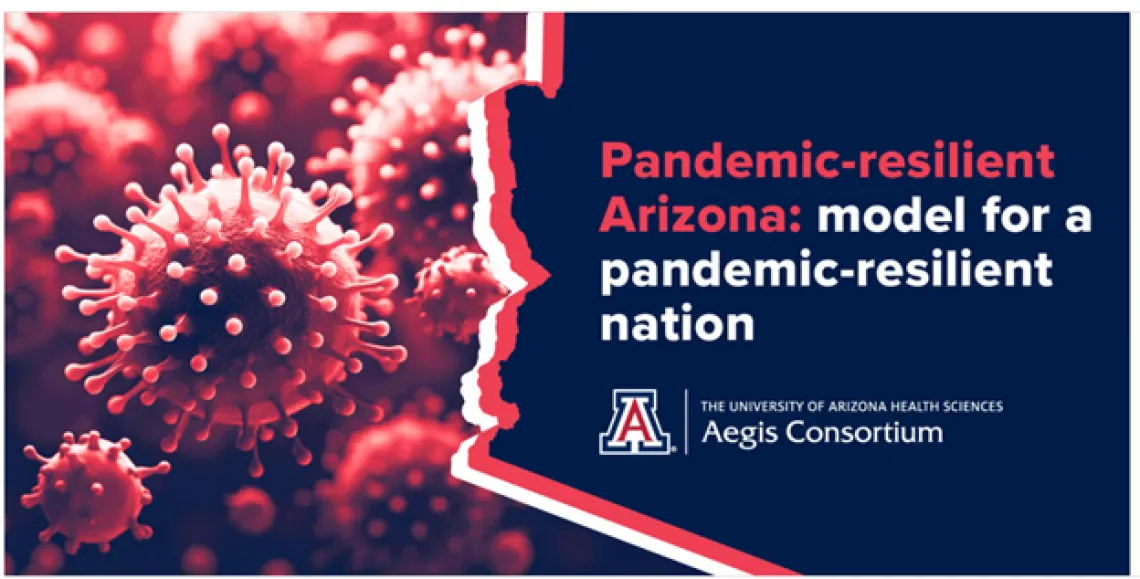WEST researchers contribute to creating a pandemic-resilient Arizona

March 2024 Event: Pandemic resilient Arizona: model for a pandemic resilient nation
Aegis Consortium
At a research summit organized by the Aegis Consortium on March 14, 2024, experts and officials shared lessons learned from the COVID-19 pandemic and worked to identify AZ-based initiatives to increase resiliency in the case of a future public health emergency.
The group that convened the event, the Aegis Consortium, was established at the University of Arizona in 2021 to develop pandemic solutions. Since its inception, the organization has built a diverse network of experts – including virologists, economists, public health specialists, information architects, engineers and more – to participate in initiatives and research efforts.
The director of Aegis Consortium, Janko Nikolich, is especially keen to draw upon the experiences, knowledge, and innovative resources in Arizona to build capacity to detect threats and minimize impacts of emergencies on human populations. As noted in a recent article:
“At its peak, the COVID-19 pandemic tested the limits of health care systems, government responses, supply chains and nearly every aspect of daily life. Nikolich’s first step toward finding a global solution is to create a pandemic-resilient Arizona that can serve as a model for the rest of the nation.”
In March 2024, a group of experts was assembled to push that work forward. Representatives from many facets of pandemic prevention and response were in attendance. Dr. Richard Carmona -- who organized the University of Arizona’s Incident Command System approach to COVID-19 -- gave the keynote address: “COVID-19 Pandemic After-Action Report & Lessons Learned.” Panels of experts from the State and County Health Department perspective spoke. During a discussion related to Detection and Surveillance, WEST Center’s Dr. Ian Pepper provided input related to integrating wastewater monitoring into a state-wide approach for early detection of new threats, while experts from Arizona State University (ASU) and Northern Arizona University (NAU) provided insight into other technologies and methods to complement population-level surveillance. Officials working in the state’s Health Ecosystem also shared ideas to better prepare health care systems to maintain needed supplies and coordinate in times of high demand.
The day-long summit concluded with discussions to identify Arizona-based initiatives that will advance a coordinated and comprehensive approach to pandemic and emergency preparedness.

